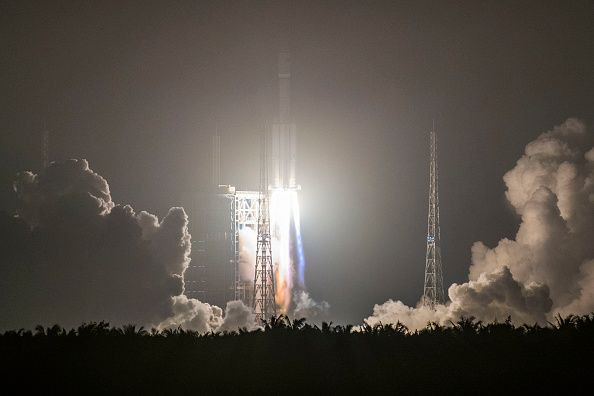China Moon Mission Moves To Fake Lunar Space Colony To Prepare Astronauts

Chinese students are living in a space colony simulation for the next year as their country prepares to send astronauts to the moon.
Xinhua, China’s state-run news agency, reported the program’s volunteers are living in “a simulated space cabin” in Beijing called “Yuegong-1” with the goal of “strengthening China’s knowledge and technical know-how, and helping the country’s scientists understand exactly what will be required for humans to remain on the moon in the medium and long terms.”
Read: Will These Two Nations Land on a Mars Moon?
The postgraduate students are in two groups and will share the load in the isolation experiment, with the two men and two women staying for a 60-day period, which started May 10, the second quartet will stay for 200 days after that, and then the first group is to return for 105 days — for a year of total moon colony time.
“The latest test is vital to the future of China’s moon and Mars missions and must be relied upon to guarantee the safety and health of our astronauts,” the Chinese Academy of Sciences’ Liu Zhiheng said in the Xinhua report.
Inside Yuegong is a living space the size of a “very small urban apartment” with sleeping compartments, a bathroom, a waste treatment room and a room for raising animals. There are also two areas for plant cultivation, which will be grown with the help of the treated waste.
Agence France-Presse reported the space cabin’s name Yuegong translates to “lunar palace” in English. It is sealed to give the volunteers the feel of an outpost on another planet, where they have to solve problems themselves, grow food and treat their own waste.
This is the second experiment of its kind for China, which had a similar 105-day mission a few years ago, and a step toward the country’s goal of sending explorers to the moon and to Mars, perhaps on long stays. Although those missions could be some years out, AFP reported, China has been working to catch up to other space-exploring nations. Earlier this year China sent its first cargo spacecraft up to dock with a space lab orbiting Earth.
That uncrewed space laboratory, Tiangong-2, launched last fall to test different technologies China would need to have a permanently staffed space station orbiting the planet, maybe in another five years.
China is not alone in holding space colony simulations — the United States, for example, has sent scientists into a small, isolated environment that mimics what a laboratory outpost would feel like on Mars. In addition to having them conduct experiments and work together to solve problems, the people were monitored on a mental health basis.
See also:
5 Moons to Explore in Our Solar System
Special Lava Makes This Moon Crater Look Way Younger Than She Is
© Copyright IBTimes 2024. All rights reserved.





















